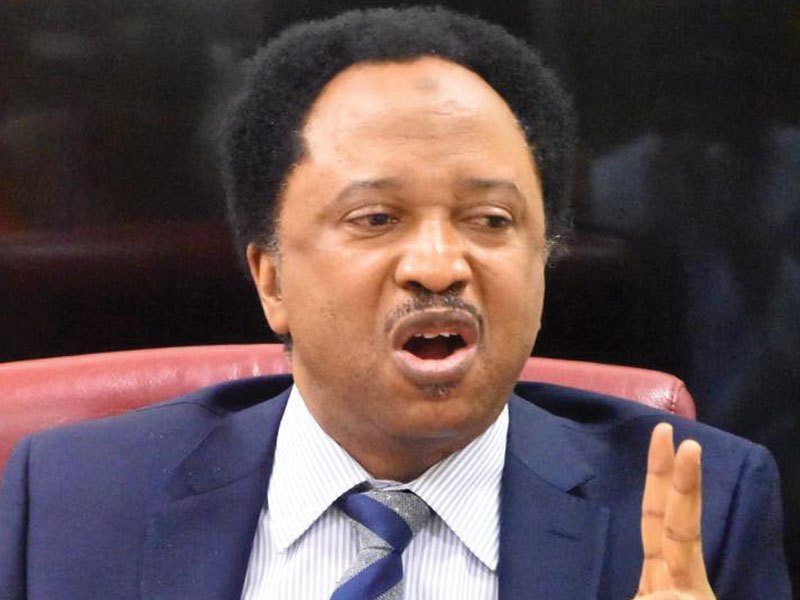Africa
Military coups threatening Africa’s democratic gains, freedom – Sani

Sen. Shehu Sani, a former lawmaker, says the spate of coups in Africa is threatening the democratic gains so far recorded by national governments in the continent.
Sani, who represented Kaduna Central Senatorial District in the 8th Senate where he served as the Vice-Chairman, Senate Committee on Foreign Affairs, gave the advice in an interview with our correspondent in Abuja.
The former lawmaker who spoke against the backdrop of coups in Mali, Guinea Bissau, and Burkina Faso in West Africa, and the one in Sudan in East Africa, said the takeover of governments by the military posed a threat to the freedom of the electorate.
It will be recalled also that on July 25, 2021, the Tunisian President, Kais Saied dismissed the country’s Prime Minister, Hichem Mechichi, and suspended the parliament, prompting crowds to fill the capital in support of a move that dramatically escalated a political crisis.
Saied’s opponents described his actions as a “coup”.
Sani condemned a situation where sitting African leaders decide to elongate their stay in power unconstitutionally.
He, therefore, urged sub-regional blocs to wade into the situation and take decisive steps towards salvaging the democratic culture across the continent.
“Ironically, the Economic Community of West African States (ECOWAS) is the most functional of the regional economic communities in Africa.”
“There is the Arab Maghreb Union (UMA), the Economic Community of Central African States (ECCAS), Southern African Development Community (SADC), and the East African Community (EAC), but none is as vibrant as the West African bloc.”
“We (ECOWAS) have streamlined healthcare regulations; our educational sector is streamlined; we all write WAEC; our doctors and nurses write the same medical examination; and we have a no-visa policy that works.”
“We have a regional parliament in place and a regular meeting of Heads of State and Governments.”
“We are not doing badly as a sub-regional group. ECOWAS is the best in Africa, but unfortunately, we have seen a wave of coups as has happened in Guinea Bissau, Mali, and now Burkina Faso.”
“This means it is a serious reversal to democratic gains in the continent, as it imperils democracy and freedom in Africa.”
“Another problem we have is Islamist terrorism, which triggered the coup in Burkina Faso.”
“So there is need for the sub-regional groups to strengthen democracy, and security is needed more now,” he said.
The former lawmaker called for a standing West African military force to assist member states in stopping Islamist terror.
He said Islamist attacks against any country should be seen as an attack against all countries in Africa.
“This Francophone-Anglophone dichotomy must dissolve now; we are not a colony of the United Kingdom. French West Africa is not a colony of France.”
“It is time to assert our independence, to protect our dignity, and to live up to the dreams of our founding fathers in the sub-region.”
“The ECOWAS must reinvent itself to tackle its security issues and assist in strengthening democracy.”
“If ECOWAS is silent when an elected president changes the constitution, breaches human rights, and commits human right abuses in these countries, it has no moral ground to condemn any coup.”
“When the signs were evident the regional body kept quiet until the situation became a calamity,” he added.
The former lawmaker said although coups were not new in Africa, the wave of it across the continent was a reason for serious concerns to the democratic process and freedom of people in Africa.
He attributed coups to the failure of democratic leaders to live up to the expectations of their people politically and economically.
“When leaders violate the constitution that legitimises their government, they have laid the grounds for a military takeover.”
“When elected leaders plunder the resources of their country and impoverish the people, they have laid the foundation for military coup because coups plotter will always take advantage of the failure of democratically elected governments.”
“When elected leaders are proven to be weak in terms of tackling security issues in the country, they are laying the grounds for a military takeover.”
“Military regimes come as a result of aggravation of some symptoms of some bad governance, which is self-evident in Mali, Burkina Faso, and Islamist terrorism was the trigger that led to the coup.”
“In the case of Sudan, when you fail to unite your country – the nation was almost at the point of disintegration – a vacuum in leadership is created,” Sani said.




 Davido's Net Worth & Lifestyle
Davido's Net Worth & Lifestyle 
